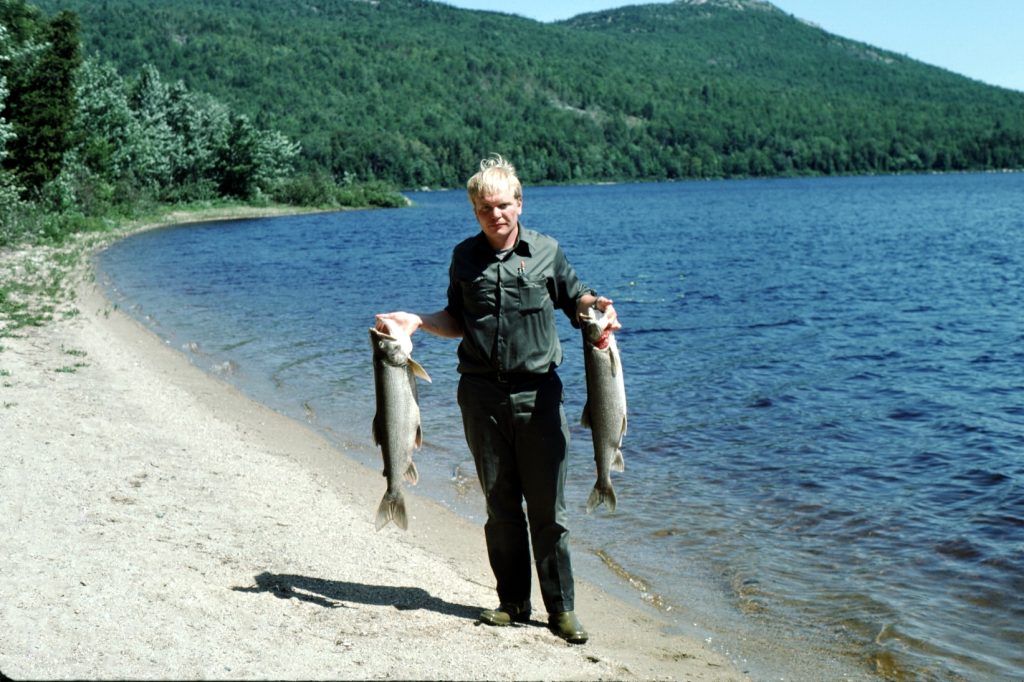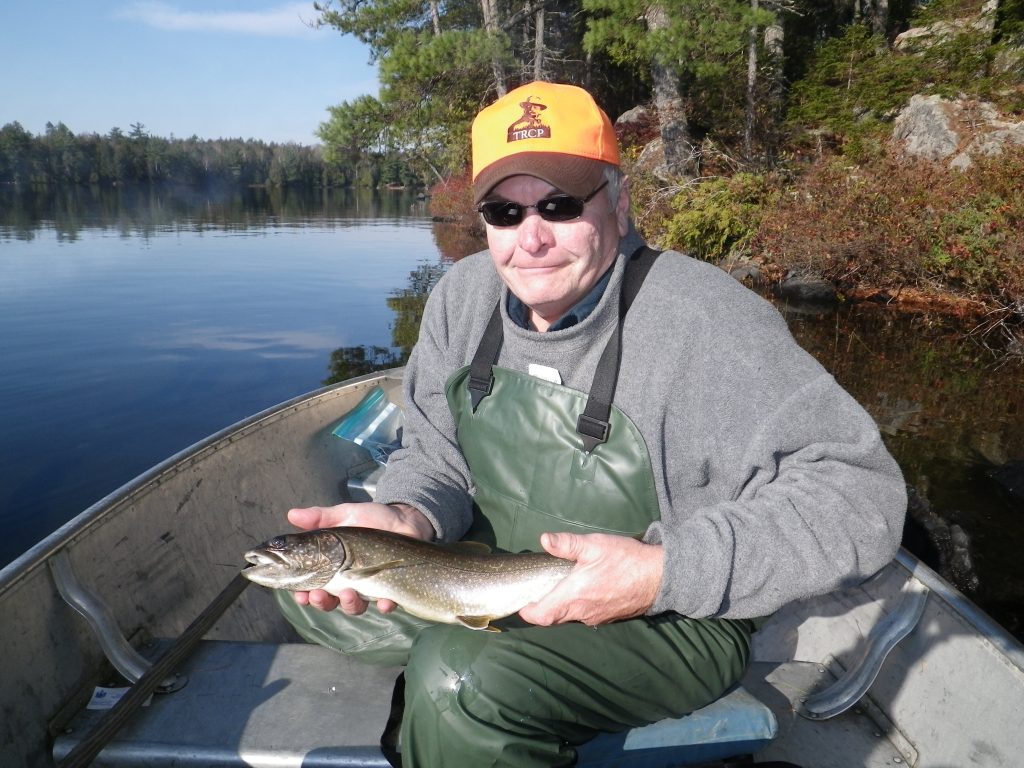My Days and Nights on the Allagash Wilderness Waterway
 Since 1978, my connection with the Allagash Wilderness Waterway has been more work related than recreational, though I can confess to some very memorable days of fishing, both winter and summer, on Allagash and Chamberlain lakes.
Since 1978, my connection with the Allagash Wilderness Waterway has been more work related than recreational, though I can confess to some very memorable days of fishing, both winter and summer, on Allagash and Chamberlain lakes.
As a fishery biologist I was fortunate to have the AWW headwater lakes in my region, and to have spent time there checking anglers and their catch, as well as surveying the waters and their fish populations. The brook trout, lake trout (togue), lake whitefish, and burbot (cusk) populations in AWW waters are native. They exist today much as they have since long before Europeans set foot on this continent, and continue to provide very good fishing in a remarkable wilderness setting.
Working on Waterway waters routinely involved multi day trips, both winter and summer. The winter trips were especially invigorating. In the late 1970’s, traveling up Chamberlain Lake to Lock Dam on a Ski Doo Elan was a bit less comfortable than it is on today’s snowmobiles. Yet working outdoors in the winter environment, often confronted by a northwesterly “breeze”, remains as refreshing as it is challenging. Winter anglers on the Allagash are very hospitable, commonly offering something warm to eat and/or drink, and willing to share tales of their experiences, past and present. You quickly realize that the people go to the Allagash for more than to set ice fishing traps for brook trout, or to jig a line to catch a whitefish or togue. For example, imagine standing out on the ice on a calm, frigid, moonless February night, seeing only by light originating from a myriad of stars above, illuminating a silhouette of the unbroken forest on the horizon. Only the occasional sound of ice groaning as it expands under your feet breaks the silence. The Allagash is full of opportunities for such mystical experiences.

My days and nights on the AWW were some of the best I experienced during my career with Inland Fisheries and Wildlife. In retirement I continue to take advantage of every chance I get to visit the Allagash, and during each visit to relish both its feeling of wilderness, and its natural and cultural history.
By Paul Johnson, fishery biologist in Maine’s Moosehead Lake Region for 35 years.
About the Author
Paul Johnson worked as a fishery biologist in Maine’s Moosehead Lake Region for 35 years. His responsibilities included managing fisheries in the headwaters of the Allagash Wilderness Waterway. Throughout his career he strived to conserve Maine’s forested lands and their associated natural resources. In retirement Paul remains dedicated to maintaining these lands, their resources, and their traditional uses.
